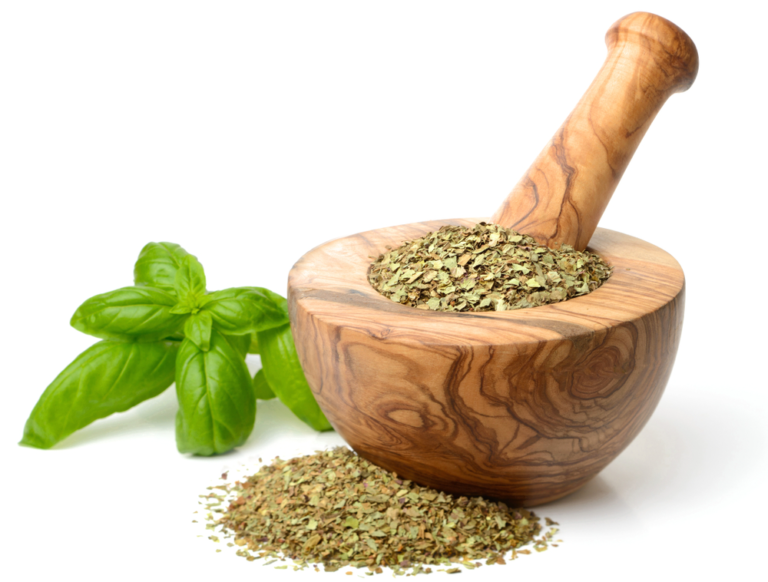Ultimate Guide to Types of Herbs
Whether you are a seasoned herbalist or a novice looking to improve your overall health, this comprehensive guide will provide you with valuable information on the various types of herbs and their health benefits.
From common culinary herbs to lesser-known medicinal herbs, we will explore the diverse world of herbs and their many uses.
By the end of this article, you will have a deep understanding of the incredible power of herbs and how they can positively impact your physical and mental well-being.
So, get ready to take a deep dive into the world of herbs and discover the immense benefits they offer.
Let’s begin this journey towards a healthier and more vibrant life together.
Table of Contents Ultimate Guide to Types of Herbs
Understand the different herb categories.
To gain a comprehensive understanding of different types of herbs and their health benefits, it is crucial to familiarize yourself with the various herb categories.
These categories can help you navigate the vast world of herbs and determine which ones align with your specific health needs.
One category is culinary herbs, which are primarily used to enhance the flavor of dishes and add depth to culinary creations.
Examples include basil, oregano, and thyme.
Another category is medicinal herbs, which have been traditionally used for their healing properties.
These herbs, such as lavender, chamomile, and echinacea, can support various aspects of health and wellness.
Lastly, there are aromatic herbs, known for their pleasant fragrances and their potential to uplift moods and promote relaxation.
Rosemary, mint, and lemon balm are popular examples in this category.
Understanding these different herb categories allows you to harness the diverse benefits that herbs can offer, whether it’s enhancing your cooking, supporting your well-being, or creating a soothing environment.
Discover the benefits of aromatic herbs.
Aromatic herbs not only add delightful scents to your surroundings, but they also offer a range of health benefits that can enhance your overall well-being.
The Ultimate Guide to Different Types of Herbs and Their Health Benefits explores the unique advantages of aromatic herbs, inviting you to discover the wonders they can bring to your life.
These herbs, such as lavender, rosemary, and mint, contain essential oils that possess therapeutic properties.
Lavender, for instance, is renowned for its calming effects, helping to alleviate stress and promote relaxation.
Rosemary has been linked to improved memory and concentration, making it an ideal herb to incorporate into your daily routine.
Mint, on the other hand, aids in digestion and can provide a refreshing boost of energy.
By incorporating aromatic herbs into your lifestyle, you can unlock their potential to uplift your mood, enhance your well-being, and create a harmonious environment.
Learn about the medicinal properties of culinary herbs.
Immerse yourself in the fascinating world of culinary herbs and uncover their remarkable medicinal properties.
Within The Ultimate Guide to Different Types of Herbs and Their Health Benefits, you will delve into the vast array of culinary herbs that not only add flavor and aroma to your dishes but also offer a wide range of health advantages.
Sage, for example, is known for its antimicrobial properties and can aid in soothing sore throats and easing digestive discomfort.
Turmeric, with its vibrant golden hue, possesses powerful anti-inflammatory properties that have been used for centuries to alleviate joint pain and promote overall wellness.
And let’s not forget about the versatile garlic, which is not only a culinary staple but also possesses antimicrobial and immune-boosting properties.
By exploring the medicinal properties of culinary herbs, you can unlock a world of natural remedies and enhance your well-being in a truly flavorful way.
Explore the healing powers of adaptogenic herbs.
Discover the incredible potential of adaptogenic herbs in promoting overall health and well-being.
Adaptogens are a unique class of herbs that have been used for centuries in traditional medicine systems like Ayurveda and Traditional Chinese Medicine.
These powerful herbs possess the ability to adapt to the specific needs of your body, helping to regulate stress levels, balance hormones, and support the immune system.
Ginseng, for instance, is renowned for its adaptogenic properties, aiding in reducing stress and boosting energy levels.
Rhodiola, another popular adaptogenic herb, has been found to improve mental clarity and enhance physical endurance.
By incorporating adaptogenic herbs into your daily routine, you can harness their healing powers to optimize your body’s resilience and promote a sense of calm and vitality.
The Ultimate Guide to Different Types of Herbs and Their Health Benefits provides a comprehensive overview of various adaptogenic herbs, their unique properties, and how they can contribute to your overall well-being.
Find out the calming effects of sedative herbs.
Explore the potential of incorporating sedative herbs into your wellness routine for their calming effects.
Sedative herbs are known for their ability to promote relaxation, reduce anxiety, and improve sleep quality.
Herbs such as chamomile, lavender, and valerian root have been used for centuries to soothe the mind and body.
Chamomile, a popular herb known for its calming properties, can help alleviate stress and promote a sense of tranquility.
Lavender, with its aromatic scent, has been shown to reduce anxiety and improve sleep quality.
Valerian root, another sedative herb, is commonly used as a natural remedy for insomnia.
By incorporating these sedative herbs into your daily routine, you can experience their calming effects and enhance your overall well-being.
The Ultimate Guide to Different Types of Herbs and Their Health Benefits offers a comprehensive resource on various sedative herbs and their unique properties, allowing you to make informed decisions about incorporating them into your wellness routine.
Increase your energy with stimulant herbs.
Incorporating stimulant herbs into your daily routine can be a natural way to increase your energy levels and promote alertness.
Stimulant herbs, such as ginseng, maca root, and guarana, have been used for centuries to combat fatigue and boost mental and physical performance.
Ginseng, a popular herb known for its adaptogenic properties, can help improve focus and enhance stamina.
Maca root, rich in vitamins and minerals, is renowned for its ability to provide sustained energy throughout the day.
Guarana, a natural source of caffeine, stimulates the central nervous system and can help improve cognitive function.
The Ultimate Guide to Different Types of Herbs and Their Health Benefits provides valuable insights into the different stimulant herbs available and their potential benefits.
By incorporating these herbs into your wellness routine, you can naturally increase your energy levels and optimize your overall productivity.
Boost your immunity with immune-boosting herbs.
In addition to providing a boost of energy, certain herbs can also help strengthen your immune system.
Immune-boosting herbs, such as echinacea, astragalus, and elderberry, have long been recognized for their ability to support and enhance the body’s natural defense mechanisms.
Echinacea, for instance, is commonly used to prevent and address the common cold and flu by promoting the production of white blood cells.
Astragalus, on the other hand, is known for its antiviral and antibacterial properties, making it a popular choice for immune support.
Elderberry, rich in antioxidants, can help reduce the duration and severity of cold and flu symptoms.
Incorporating these immune-boosting herbs into your daily routine, as highlighted in The Ultimate Guide to Different Types of Herbs and Their Health Benefits, can play a crucial role in maintaining a strong and resilient immune system, especially during times of increased vulnerability.
Incorporate herbs into your daily routine for optimal health.
To optimize your health and well-being, it is highly recommended to incorporate a variety of herbs into your daily routine.
The Ultimate Guide to Different Types of Herbs and Their Health Benefits provides valuable insights into the numerous herbs that can support your overall well-being.
Herbs such as turmeric, ginger, and holy basil have been recognized for their anti-inflammatory properties, aiding in reducing inflammation throughout the body.
Additionally, herbs like chamomile and lavender possess calming effects, promoting relaxation and better sleep.
Incorporating these herbs into your daily routine, whether through teas, tinctures, or culinary uses, can contribute to improved digestion, reduced stress levels, and enhanced immune function.
Embrace the power of herbs in The Ultimate Guide to Different Types of Herbs and Their Health Benefits and unlock their potential to elevate your health to new heights.
In conclusion, exploring the world of herbs can offer numerous health benefits and enhance your overall well-being.
With a variety of herbs to choose from, you can easily incorporate them into your daily routine and reap the benefits of their medicinal and nutritional properties.
Remember to always consult with a healthcare professional before adding any new herbs to your diet, and enjoy the natural and powerful healing properties of these amazing plants.
So, go ahead and start experimenting with different types of herbs to find the ones that work best for you.
Your body will thank you for it.
FAQ
What are some common types of herbs and their health benefits?
In your kitchen, you have access to a variety of common herbs that offer numerous health benefits.
Basil can support digestion and reduce inflammation.
Mint can soothe the stomach and relieve headaches.
Rosemary has antioxidant properties and can enhance memory and concentration.
Oregano is rich in antioxidants and may have antimicrobial effects.
Thyme has antiseptic properties and can alleviate respiratory issues.
Cilantro can aid in detoxification and promote healthy digestion.
Sage has anti-inflammatory benefits and may improve brain function.
By incorporating these herbs into your meals, you can not only add flavor but also boost your overall health and well-being.
How can herbs be used to improve digestion and promote gut health?
To improve digestion and promote gut health, you can incorporate herbs into your routine.
Start by including ginger in your meals or drinking ginger tea to alleviate digestive discomfort.
Peppermint can also be helpful in soothing an upset stomach.
Consider using fennel seeds to aid digestion and reduce bloating.
Another option is chamomile tea, known for its calming properties and ability to relieve gastrointestinal issues.
Additionally, turmeric can reduce inflammation and promote a healthy gut.
Incorporating herbs into your diet can contribute to better digestion and overall gut health.
Are there any herbs that can help boost the immune system and prevent illnesses?
Yes, there are several herbs that can help boost your immune system and prevent illnesses.
One of them is echinacea, which can enhance the production of white blood cells to fight off infections.
Another herb is elderberry, known for its antiviral properties that can help prevent colds and flu.
Additionally, garlic and ginger have immune-boosting properties and can be easily incorporated into your diet.
Don’t forget about turmeric, which contains curcumin, a powerful antioxidant that strengthens the immune system.
Including these herbs in your daily routine can provide natural support for your immune system and help ward off illnesses.
What are some herbs that can be used to alleviate stress and promote relaxation?
To alleviate stress and promote relaxation, you can try using herbs like lavender and chamomile.
Lavender has calming properties and can help reduce anxiety and promote better sleep.
You can add a few drops of lavender essential oil to your bathwater or use a lavender-scented candle to create a soothing atmosphere.
Chamomile tea is also known for its relaxing effects.
Brew a cup of chamomile tea before bedtime to help unwind and promote a more restful sleep.
Additionally, herbs like lemon balm and ashwagandha may also help in reducing stress and promoting relaxation.
How can herbs be incorporated into everyday cooking to enhance flavor and provide health benefits?
You can easily incorporate herbs into your everyday cooking to elevate both the flavor and health benefits of your meals.
Start by adding fresh herbs like basil, thyme, or rosemary to your sauces, soups, and marinades.
They will infuse a delightful aroma and taste into your dishes.
Additionally, you can use dried herbs such as oregano or parsley to season your meats, vegetables, and grains.
Not only do herbs add depth to your meals, but they also offer various health benefits.
For instance, basil is known for its anti-inflammatory properties, while garlic aids in boosting the immune system.
By incorporating herbs, you can transform your everyday cooking into a flavorful and nutritious experience.







